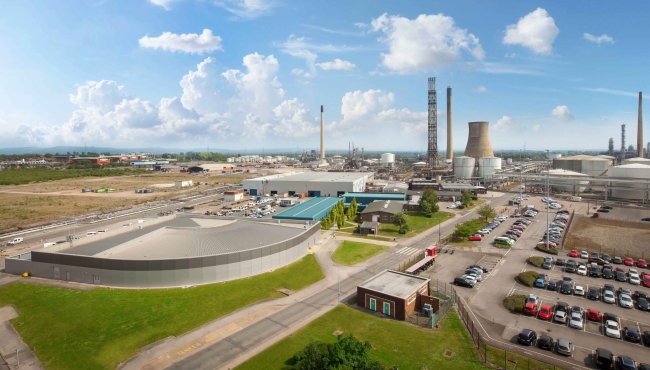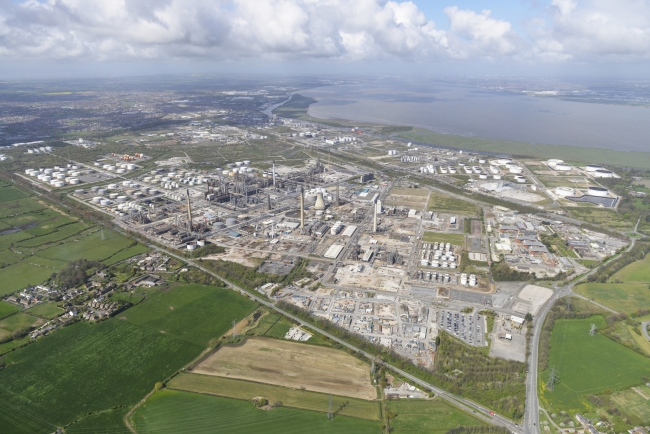3 minute read
HyNet North West awarded £72m of funding
HyNet North West has been awarded £72m of funding from UK Research and Innovation (UKRI) and the project’s consortium partners. The HyNet North West project aims to transform the North West into the world’s first low carbon industrial cluster, playing a critical role in the UK’s transition to net zero greenhouse gas emissions by 2050 and the global fight against climate change.
The North West industrial cluster region has the largest concentration of advanced manufacturing and chemical production in the UK and is home to a concentration of energy intensive users. The HyNet North West hydrogen and carbon capture and storage (CCS) project is being developed by a consortium of regionally located partners including Progressive Energy, Cadent, CF Fertilisers, Eni UK, Essar, Hanson, INOVYN (part of the INEOS Group) and the University of Chester.
From 2025, HyNet North West will begin to convert natural gas into low carbon hydrogen at Stanlow Refinery, with carbon dioxide safely captured and stored offshore in the Liverpool Bay gas fields. A new pipeline network will transport the clean hydrogen to power industry, fuel buses, trains and heavy goods vehicles, to generate electricity, and to heat homes across North West England and North Wales.

HyNet North West has been awarded £72m of funding by UKRI & consortium partners to accelerate plans for the world’s first low carbon industrial cluster / Picture: Essar Oil
HyNet North West will reduce regional carbon dioxide emissions by up to 10 million tonnes every year by 2030 – the equivalent of taking four million cars off the road. By then, HyNet North West alone will already be delivering 80% of the government’s new UK-wide target of 5GW of low carbon hydrogen1 for power, transport, industry and homes.
In addition to creating over 6,000 new, permanent jobs, the HyNet North West project will protect and retain jobs in existing high value manufacturing industries. Workers will develop fresh skill sets and train in exciting new sectors, fostering regional growth and inward investment. By kick-starting the UK’s hydrogen economy, HyNet North West is expected to help support up to 75,000 jobs across the country by 2035.
The £72m funding comprises £33m from UK Research and Innovation (UKRI) through the Industrial Decarbonisation Challenge (IDC) fund, and £39m of consortium partner contribution. The funding will allow HyNet North West to accelerate to a Final Investment Decision (FID) in 2023 for the initial phase, and become operational in 2025. Further elements of the HyNet North West project will follow, resulting in the distribution of up to 30TWh / year of low carbon hydrogen being distributed by 2030 – enough to displace 45% of natural gas used across the region.

HyNet North West project could help support up to 75,000 jobs across the United Kingdom by 2035 / Picture: Essar Oil
HyNet North West has been under development for four years with work so far including extensive engineering studies and demonstration projects. Environmental survey work, supported by funding from the Cheshire & Warrington Local Enterprise Partnership Growth Fund, has recently begun and consultation with stakeholders, including the general public, will begin later this year as the planning process to gain consent for development.
David Parkin, director of Progressive Energy and HyNetNW project director, said: “We know we cannot reach net zero without decarbonising industry. HyNet North West is a game-changing project of strategic importance. It is uniquely developed to be low-cost and deliverable and will begin decarbonising the north west by 2025.
“Through the production of low carbon hydrogen and the capturing, and storing, of carbon dioxide, it offers a once-in-a-generation opportunity to create real change in how we produce and use our energy, establishing a cleaner world for future generations. It will unlock a low carbon future economy in North West England and North Wales, not only reducing emissions but also creating and safeguarding jobs. We are pleased to be working with government on making the green industrial revolution a reality.”
Business and energy secretary, Kwasi Kwarteng, said: “We were the first major economy to put into law our target to end our contribution to climate change, and today we’re taking steps to be the first major economy to have its own low-carbon industrial sector. While reaching our climate targets will require extensive change across our economy, we must do so in a way that protects jobs, creates new industries and attracts inward investment – without pushing emissions and business abroad.”